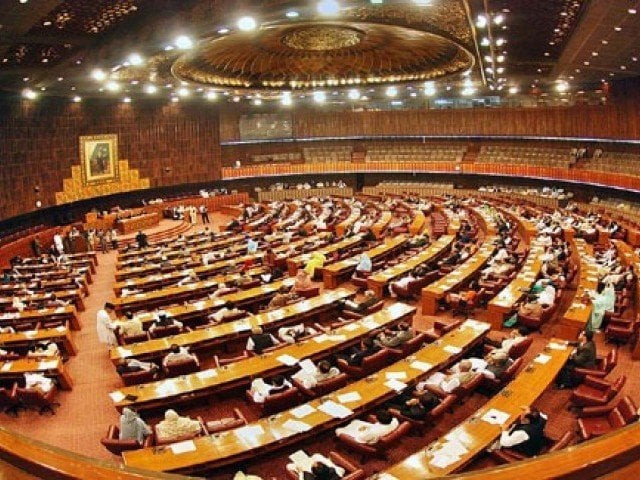Unraveling mystery: A layman’s guide to senate elections
As half of the Upper House prepares to bid adieu to the parliament, this is how the transition will take place

As voting day draws closer and nominees sweat in anticipation, there is yet a lot to be learned about the upcoming senate elections. Polling in the upper legislative chamber, unlike the general elections, remains a much more puzzling affair for many— including constitutional, legal, political and electoral experts. The prime difference being that this poll, which is held on the basis of what’s called a Single Transferrable Vote, is exclusive to elected representatives in the parliament.
Although the general public may remain out of polling, it is still important to understand the voting process of this national-dialogue-making election. In the past, owing to lack of information, secret ballots have led to many shocking election results. Often times, leaving the whole electoral process with a suspicious aftertaste.
Speaking in the regard, Former Election Commission Secretary Kunwar Dilshad said that the purpose of the Senate is to ensure equal representation of all provinces. “The Senate was formed to represent those who considered themselves separate. In a parliamentary system, the two houses never run by consensus. The National Assembly represents the people and the Senate represents the federal units. Both play important roles. It would be unnatural for the two houses not to disagree,” he told, highlighting importance of Senate elections.
Also read: Senate elections to be held through secret ballot under Article 226: SC
Setting context
The senate, also referred to as the Upper Legislative Chamber or the Upper House of Pakistan’s parliament, is a council of 104 lawmakers; each serving a six year term. However, the entire body is never overhauled at once. Rather, senate elections take place every three years to replace half the senators each time. This year, the 52 senators who were elected in 2015 are due for retirement. Those who make the seat on March 3 2021, will be sent home in 2027.
Electoral ins and outs
The electoral process is such that all members of the National Assembly will be given two ballot papers— one for the general seat and other for the women’s seat. In Punjab and Sindh, members of the Provincial Assembly will be granted three ballot papers, for the election of general, women and technocrat seats. In Khyber Pakhtunkhwa and Baluchistan however, members of Provincial Assembly members will be given four ballot papers, where the additional ballot will correspond to a minority seat.
The said ballot papers will enlist candidate names in both, English and Urdu. While a blank box adjacent to candidate name on the ballot, is where members of assembly will mark the prefix number for their desired candidate. For instance, if 10 candidates are contesting from Sindh for seven general seats in the senate, then all the members of the Sindh Assembly will be given a ballot paper mentioning names of all 10 candidates without election symbol.
The changes
After merger of Federally Administered Tribal Areas (FATA) with the neighbouring province of Khyber Pakhtunkhwa, elections were to be held for 48 senate seats this time. However, following uncontested victory of candidates in 11 seats in Punjab, the March 3 elections will now be held for 37 seats instead. The 2021 Senate Elections will thus elect 11 senators from Sindh, 12 from Khyber Pakhtunkhwa and Balochistan each, and two from Islamabad to join the Upper House.
The math
It is also worth knowing that the provincial assemblies also serve as the Electoral College for the senate elections, considering senators from the provincial quota are elected by the votes of their respective provincial assembly members. Senators from Islamabad however, are elected by members of the entire National Assembly.
There are a total of 168 members in the Sindh Assembly. Elections this year are being contested over seven vacant general seats of the senate from Sindh. There are two seats for women technocrats and two seats for which elections are going to be held in the respective provinces. Dividing these seats into 168 seats can therefore determine the golden figure for each seat, in other words, the required number of votes.
Also read: Govt moves to woo disgruntled lawmakers ahead of Senate polls
For instance: For general senate seats, 24 votes will have to be obtained from the Sindh Assembly. If the two women’s seats in Sindh are divided into a total of 168 members, then the required number of votes; the golden figure; comes down to 84.
Similarly, to secure a womens’ seat from Punjab, a candidate has to get 84 votes. Under the same formula, 21 votes will be required from the Khyber-Pakhtunkhwa Assembly for general seats, while technocrats’ and women’s seats will require 73 votes. Likewise, a candidate from the Balochistan Assembly will have to secure nine votes to win, while for the seats of women and technocrats, he will have to get the required 33 votes.
Whereas, the entire National Assembly will vote in the two-seat Senate elections in Islamabad. The candidate who gets the majority of votes i.e. 172 votes will thus be considered successful for the elections to the general and women's seats in Islamabad.
The legalities
Talking about the Presidential Ordinance on Open Ballots and the Presidential Reference in the Supreme Court on Elections, Kanwar Dilshad said that the position of the Election Commission on Senate elections has always been clear and unequivocal. “As the Election Commission is a constitutional body, it is bound to discharge its responsibilities under the Constitution and in this regard, Senate elections cannot be open without amending Article 226 of the Constitution,” he told The Express Tribune



















COMMENTS
Comments are moderated and generally will be posted if they are on-topic and not abusive.
For more information, please see our Comments FAQ